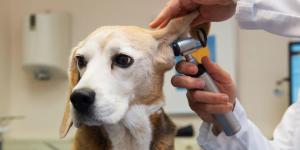Unhealthiest Dog Breeds



See files for Dogs
Have you ever wondered which are the most unhealthy dog breeds? And do you ever wonder why some dog breeds are healthier than others? If you are considering adopting a dog, their general health status needs to be taken into account. When adopting a dog, the breed you decide to adopt is always important. Other than making sure you can offer the dog a comfortable home, you need to make sure you have the financial ability to care for a dog if they have a health problem.
At AnimalWised, we reveal the top 15 dog breeds with the most health problems. This list is based on studies and research carried out on different dog breeds. Keep reading to discover the unhealthiest dog breeds.
- Shar Pei
- Rottweiler
- Neapolitan Mastiff
- English Mastiff
- Irish Wolfhound
- Great Dane
- Boxer
- French Bulldog
- Dogo Argentino
- Dobermann Pinscher
- Scottish Deerhound
- English Bull Terrier
- Bullmastiff
- English Bulldog
- Bernese Mountain Dog
- Purebred vs. mixed-breed dogs
1. Shar Pei
Sadly, Shar Pei dogs are one of the breeds of dogs most prone to disease. The Shar Pei tends to suffer from many skin diseases. This is due to their characteristic folds which promote bacterial growth. They also produce more sebum than many other breeds which encourages skin problems. They are also prone to other canine disorders, such as entropion, hip dysplasia, cataracts, hypothyroidism or megaesophagus.
Although it is not well known, the Shar Pei is partly known as one of the most unhealthy dog breeds because they have a disease named after them. This is known as Shar Pei fever and it can cause inflammation, gastrointestinal disease and other disorders.

2. Rottweiler
Rottweilers are strong and robust dogs. However, these breed characteristics do not exempt them suffering from hereditary disease. Common Rottweiler health problems such as subaortic stenosis, elbow dysplasia, hip dysplasia and/or cataracts have led them to be considered one of the most unhealthy dog breeds.
Rottweiler dog breeds are also prone to deafness and pancreatitis. If you want to know more about this intelligent and dominant dog breed, take a look at our breed file on Rottweilers.
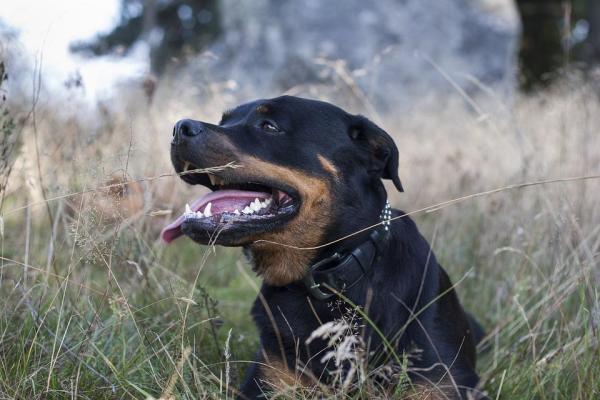
3. Neapolitan Mastiff
The Neapolitan mastiff is a giant sized dog breed, commonly known for the large wrinkles that cover their face. Like many other large and/or giant dog breeds, Neapolitan Mastiffs have a predisposition to hip dysplasia. Their large physical attributes also influence other health problems, such as ectropion (lower eyelid droop in dogs), entropion and pyoderma (bacterial skin infection in dogs). They make them one of the largest unhealthiest dog breeds.
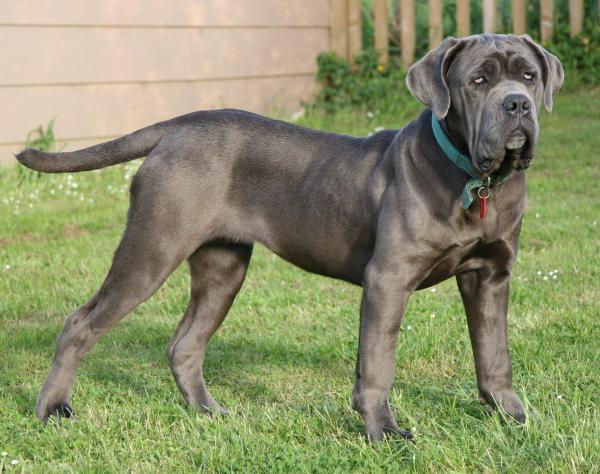
4. English Mastiff
The English mastiff, popularly known as simply the Mastiff, is another giant dog breed. As with other large dog breeds, Mastiffs are prone to hip dysplasia, elbow dysplasia, pulmonary stenosis, cataracts and retinal dysplasia.
If you want to know more about this large dog breed, take a look at our article on the differences between English, French and Spanish Mastiffs.
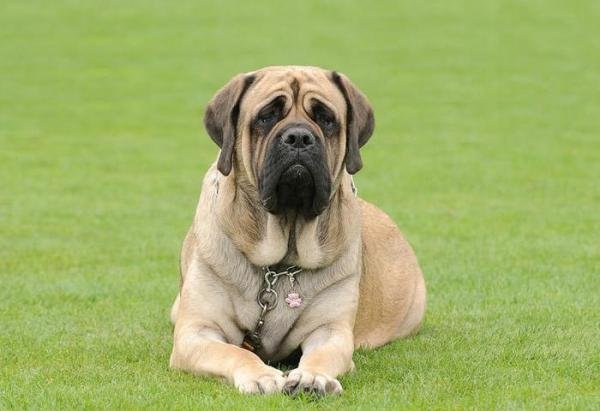
5. Irish Wolfhound
The Irish Wolfhound is a giant dog breed that is considered one of the most unhealthiest dog breeds. Unfortunately, their health problems mean they have one of the shortest life expectancies or any dog breed. Some of the hereditary pathologies of Irish Wolfhounds include dilated cardiomyopathy in dogs (heart disease), hip dysplasia and portosystemic shunt (associated with liver failure in dogs).
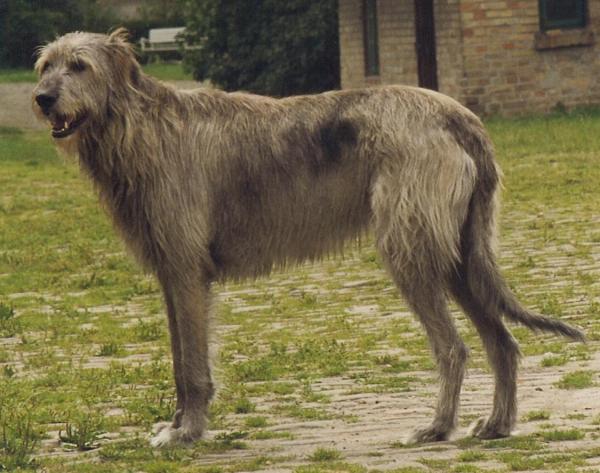
6. Great Dane
The Great Dane is considered one of the largest dog breeds in the world. Great Danes are probably best-known for their size, but they are unfortunately among the top 15 unhealthiest dog breeds. They health problems include dilated cardiomyopathy, Wobbler syndrome, stomach dilation (gastric torsion) and hip dysplasia.
Great Danes fall under the list of tallest dog breeds and commonly live between 6 to 8 years old. If you are thinking of adopting this dog breed, we suggest taking a look at our Great Dane breed file for more.
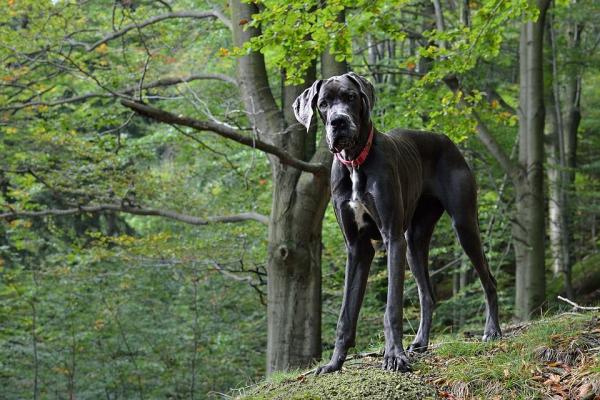
7. Boxer
Boxer dogs are certainly very popular dog breeds. Unfortunately, the physical traits this breed are known for derive from irresponsible breeding. This breeding limits their genes and encourages hereditary health problems. Boxers have a predisposition to suffering from heart problems, as well as skin conditions. If you want to find out more about the common diseases of boxer dogs, take a look at our article on the life expectancy of Boxer dogs.

8. French Bulldog
French bulldogs are another very popular dog breed. Although they are considered very friendly dogs, French Bulldogs are also unfortunately listed as one of the unhealthiest dog breeds. As with boxers, these cute dogs suffer from brachycephalic dog syndrome. This is a collection of issues which includes cleft palates, entropion, canine ulcerative colitis and intervertebral disc disease.
For more, take a look at our; brachycephalic dog breeds list. Where we discuss the characteristics and care of this respiratory dog condition, caused specifically by selective breeding.
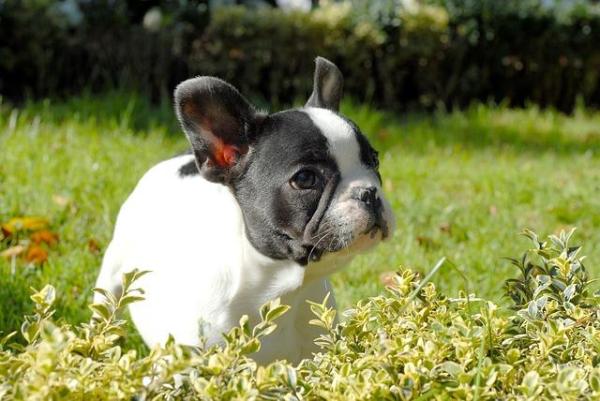
9. Dogo Argentino
Dogo Argentinos are incredibly impressive dogs. They are known for being a faithful dog breed with a balanced character. Unfortunately, they are also prone to certain diseases and health issues. These include a predisposition to deafness, skin problems and hip dysplasia.
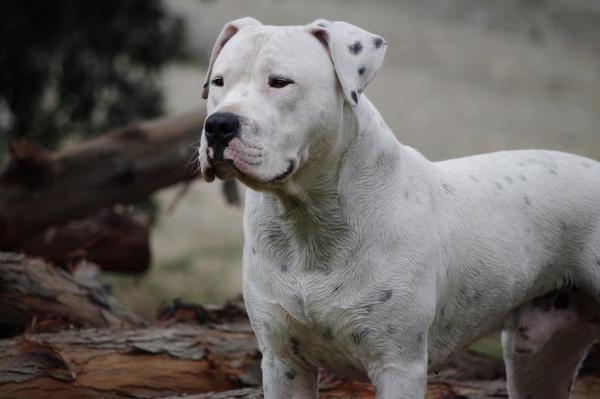
10. Dobermann Pinscher
The Doberman Pinscher is a dog breed that has unfortunate stigma associated with them. This is often the myth that they are aggressive or poor family dogs. Some even believe it is their health problems which promote aggression. The truth is that none of the frequent hereditary diseases in this dog breed cause or generate aggressiveness.
The most common Doberman diseases include dilated cardiomyopathy, Wobbler syndrome, intervertebral disc disease and von Willebrand disease. Dobermans also commonly suffer from cataracts, deafness and skin problems.
Do you want to know more about common Doberman diseases? Discover them in our article on the common illnesses of Dobermans.
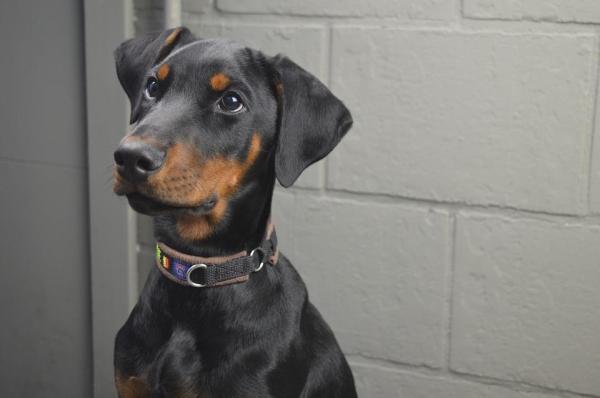
11. Scottish Deerhound
The Scottish Hound, also known as Scottish Deerhound, is a giant-sized dog, known for their sociable and gentle nature. Some hereditary diseases that can present themselves in this dog breed include osteochondrodysplasia (skeletal dysplasia), dilated cardiomyopathy and gastric torsion in dogs.
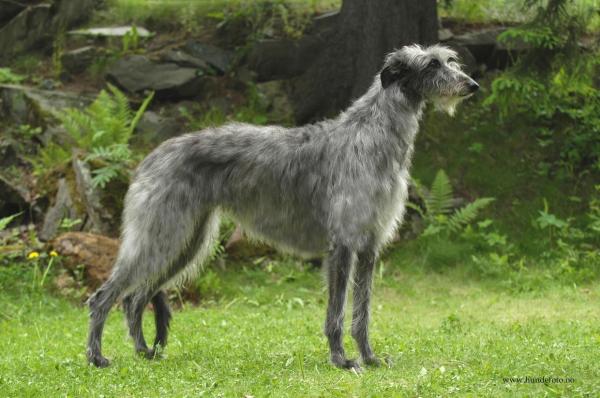
12. English Bull Terrier
English bull terriers stand out as one of the dog breeds with the highest morphological changes. In fact, this breed's current appearance has little to do with the initial standard of the breed. One of the most frequent hereditary diseases in English Bull Terriers is lethal acrodermatitis, which causes them to die before reaching adulthood.
Other common diseases in Bull Terriers are mitral valve dysplasia, deafness, eye diseases and/or demodectic mange. In addition, this is one of the dog breeds that has a higher probability of presenting behavioral problems. For more, take a look at our article on the common diseases of Bull Terriers.

13. Bullmastiff
The Bullmastiff is a large dog breed that descends from a mix of English Bulldog and Mastiff lines. Bullmastiffs are animals of imposing appearance, that are susceptible to hip dysplasia, entropion, elbow dysplasia, Wobbler syndrome and ataxia in dogs.
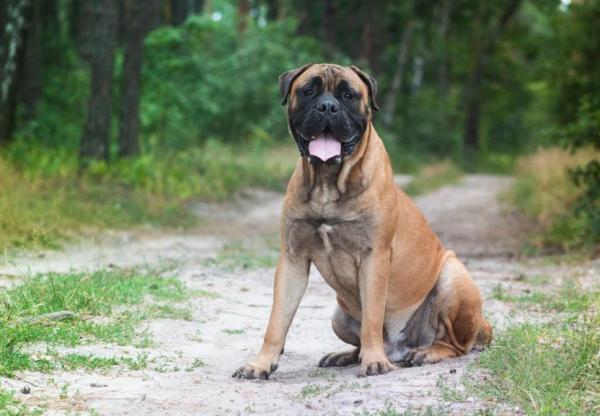
14. English Bulldog
The English bulldog is another brachycephalic dog that makes our list of the unhealthiest dog breeds. The continuous exaggeration of this dog breed’s physical attributes has turned it into one of the dog breeds with the most health problems. English Bulldogs are very prone to a number of hereditary diseases.
Apart from presenting brachycephalic dog syndrome. Common diseases in English Bulldogs include hip dysplasia, keratoconjunctivitus sicca (Dry eyes in dogs), pulmonary stenosis, ventricular septal defect, deafness, hydrocephalus, hemivertebra and spina bifida.

15. Bernese Mountain Dog
The Bernese Mountain dog is known as one of the most docile and intelligent dog breeds. They are also considered a social and calm dog breed. They are also currently one of the most popular family dog breeds. Unfortunately, they however have a predisposition to canine meningitis, elbow dysplasia, hip dysplasia, histiocytosis, ataxia, shaking puppy syndrome and progressive retinal atrophy.

Purebred vs. mixed-breed dogs
It is important to note that there are no breeds of dogs that are 100% healthy and are immune to becoming ill. However, it is true that purebred dogs generally tend to suffer more from hereditary health problems than mixed-dog breeds.
You may wonder why are mutts supposedly healthier than purebred dog breeds. The dog breeds that meet breed standards have been bred in such a way that their genetic lineage is limited. This is because breeders want to encourage certain physical or behavioral traits which are also controlled by genetics. By encouraging these traits, they also propagate the genes which are associated with hereditary disease.
For some dog guardians, they consider many of these most unhealthy dog breeds to be dog breeds that shouldn't exist. They consider the propagation of certain traits to be irresponsible and the desire for a uniform breed is immoral. When we add to the fact that many lay persons try to breed dogs and do so in ignorance or in lacking responsibility, it does present a problem.
This does not mean many purebred dogs cannot live long and happy lives. But the fact that we can pinpoint these unhealthiest dog breeds means we may need to reconsider how we breed companion animals. Share your thoughts in the comments.
There are also some breeds which are thought to be healthier than others, as you can see with our video below on the longest living dog breeds:

This article is purely informative. AnimalWised does not have the authority to prescribe any veterinary treatment or create a diagnosis. We invite you to take your pet to the veterinarian if they are suffering from any condition or pain.
If you want to read similar articles to Unhealthiest Dog Breeds, we recommend you visit our Prevention category.
- Jansson, M, &Laikre, L. (2014). Recent breeding history of dog breeds in Sweden: modest rates of inbreeding, extensive loss of genetic diversity and lack of correlation between inbreeding and health. Animal Breeding and Genetics, 131(2), 153-162.
https://doi.org/10.1111/jbg.12060 - University of Prince Edward Island. (2010). Canine Inherited Disorders Database. Retrieved from:
https://cidd.discoveryspace.ca/




